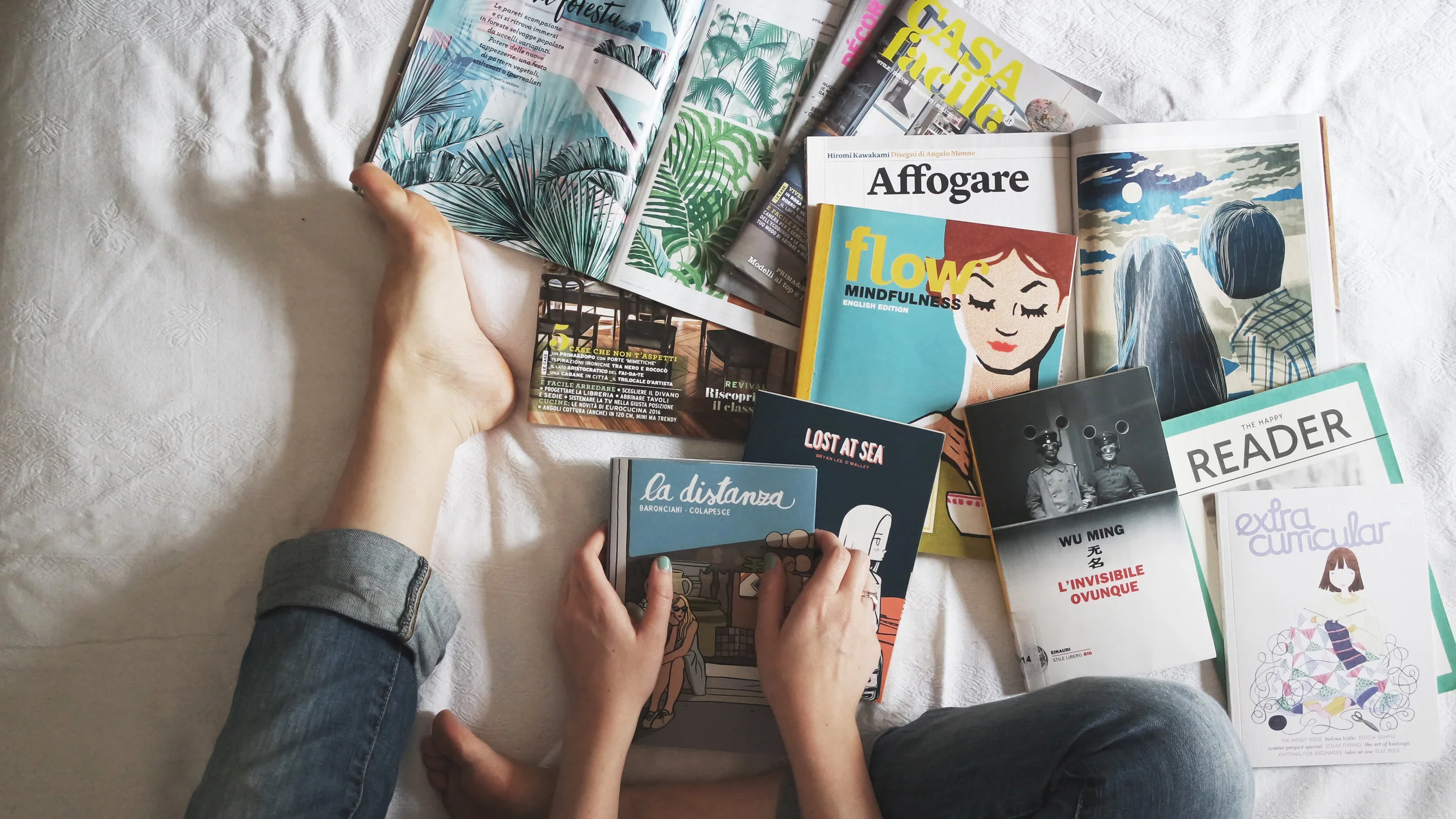The Rudest Rejection I've Ever Gotten From a Magazine (And What It Taught Me About Submitting My Writing)
I knew when I decided to write professionally it would be difficult. I knew most of my pitches would be rejected and I knew editors would chop my work to bits over the smallest infractions and do more damage with larger errors. I knew the competition would be fierce and the demoralizing rejection fiercer. I knew the financial realities of being a full-time writer would make it all but impossible for me to become one if I wanted to live a normal, middle-class life. I knew all these difficulties would be amplified a thousandfold if I chose to write creatively.
And yet, that's what I decided to do. And despite everything, I think it's worth it.
But what I didn't know when I decided to follow my passion was that some magazines would scorn the very people they depended on. Some magazines think so highly of themselves that they can't be bothered to send a neutral or politely dismissive rejection letter. This I know because I recently received an unnecessarily rude and harsh rejection letter. Though identifying info has been redacted, this is the message as copied and pasted from the email:
Dear Mandy,
Thank you for sending us "XXXXXXXXXX."Unfortunately this piece is missing the new or surprising element that would qualify it as an “untold” story.
Best of luck placing this piece elsewhere, and I hope you’ll pitch us again in the future. To receive future calls for pitches, sign up here for our email list.
Sincerely,
XXXXXXX
It won't surprise you that the part that ruffles my feathers is "this piece is missing the new or surprising element that would qualify it as an 'untold' story." A couple of mini rants about this:
There are no untold stories. Every story has been told by someone. Just because they haven't seen it doesn't mean it's untold. And the moment a story has been uttered, it's officially told, regardless of whether it's been published yet or not.
They could've left that sentence off entirely and the rejection would've had a fine tone. Most rejection letters basically say the same thing, "Hey, while we're not able to accept your work for publication we wish you good luck placing it." That's perfectly acceptable. Telling someone they're unoriginal and that *you* think they suck (regardless of whether they do objectively suck or not) does not change the outcome. The piece is rejected, that's all there is to say. There's no need to add insult to injury, literally.
Of all people, magazine editors should know just how hard the writing life is. They get hundreds, if not thousands, of submissions. Each one sent by a human person with hopes, dreams, and fears. And most magazines can only accept 1-2% (or less!) of the submissions sent to them. The odds are against writers, which means we often have to submit to a ton of publications before we find a home for our writing. You would think magazine editors would know this and at least pretend to be sympathetic to our plight.
What this experience taught me is that publications that send rude rejections don't value writers, which is why you should never submit to them. Despite the fact that their entire platform relies on writers, and they could've just as easily said "no thanks" without being insulting, they chose to unnecessarily qualify their editorial decision with disrespect.
And here's the thing: writers expect to be rejected. For every acceptance I get, I have sometimes 10 or 20 rejections and that's normal. I've also placed pieces at the first attempt a few times, but that is by far the exception and not the rule. Since writers expect rejection, there's no reason for publications to qualify their editorial decisions or cut writers down for simply making the mistake of submitting to an asshole magazine.
Furthermore, the publications that write rude rejection letters don't seem to understand the ripple effects these things have. Do you think I'd ever let them publish my work now, even if they asked? Do you think I'd ever encourage another writer to submit to them? Do you think I'll ever buy another copy of their magazine? No on all accounts. I've been rejected many times and have continued to support the work of magazines who rejected me and encourage others to check them out. But I just don't feel I can do that with this magazine.
A message to editors: No is a complete sentence. If you can't respect the time a writer has put into their work, even if you as the editor didn't personally enjoy it or think it to be right for your publication, or respect the fact that out of the hundreds of thousands of publications in the world the writer chose yours, then you don't deserve an audience at all of any kind.
I'm not new to rejection. EVERY writer gets rejected. I eat rejection for fucking breakfast. But I don't abide publications that treat writers, their lifeblood, poorly.
If this editor thinks she's discouraged me from writing or submitting, she's wrong. I hope when I’m an award-winning famous writer one day this magazine asks me for a piece and I let them know their magazine is missing the "new and surprising" elements that I want in publications that publish my work. That editor hasn't discouraged me from writing––she's only discouraged me from ever submitting to her magazine again.
And here's another thing; some real talk about why publications should never be shitty to writers just because a submission wasn't a good fit: The majority of pieces submitted to magazines aren’t a good fit for that magazine and that’s the very thing that keeps editors employed! If every single piece submitted to the magazine was a perfect fit, there'd be no need for editors. Editors don't exist for good writing. The only reason magazine editors exist is to weed through a mountain of submissions, most of which will be rejected, to find the needles in the haystack.
And something else: The writers who get rejected today may very well be getting accepted tomorrow. Every writer has to start somewhere and even well-established professional writers still get rejected. So when that once-rejected writer starts getting accepted, they're going to keep submitting and their work may be sought after. But if they have a bad taste in their mouth from a publication, what incentive do they have to submit there again?
Even though the rejection encouraged me to submit again, I can't imagine why that editor would think I'd want to do that. This leads to yet another truth about the writing world: magazines are a dime a dozen. And I'd rather submit to and support publications that are professional and nice.
Have you ever gotten a rejection letter that left a bad taste in your mouth? Tell me in the comments.
P.S. I think it would be unprofessional of me to call out this publication publicly, but if you're a writer and want to avoid submitting to them, reach out via my contact page and I'll tell you what magazine it is on the down low. The writing life is tough and writers have to stick together.






